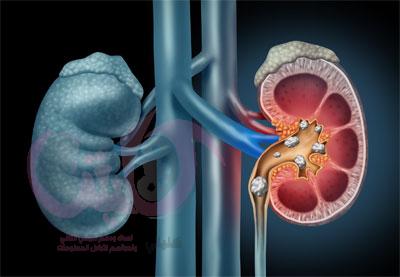
زيادة الوزن غير مرتبطة بكمية الطعام ؟!!
زيادة الوزن غير مرتبطة بكمية الطعام ؟!!
يجادل فريق من العلماء الأميركيين هذه الأيام، في دراسة جديدة قد تكون مُرضية لشريحة كبيرة من الناس، بأن الأسباب الجذرية لوباء السمنة ترتبط أكثر بنوعية ما نأكله وليس مقدار من يتم تناوله.
فقد أظهرت الإحصائيات ، الصادرة عن المركز الأميركي لمكافحة الأمراض والوقاية منها CDC، أن السمنة تؤثر على أكثر من 40٪ من البالغين الأميركيين، مما يعرضهم لخطر الإصابة بأمراض القلب والسكتة الدماغية والسكري من النوع 2 وأنواع معينة من السرطان، وذلك وفقاً لما نشره موقع SciTechDaily.
وأفادت الإرشادات الغذائية للأميركيين الصادرة عن وزارة الزراعة الأميركية 2020 – 2025 أيضاً بأن فقدان الوزن يتطلب من البالغين تقليل عدد السعرات الحرارية التي يحصلون عليها من الأطعمة والمشروبات وزيادة النشاط البدني.
نهج “توازن الطاقة” العتيق
كما يعتمد هذا النهج لإدارة الوزن على نموذج توازن الطاقة، الذي يعود تاريخه إلى قرن من الزمان، والذي ينص على أن زيادة الوزن ناتجة عن استهلاك طاقة أقل مما يتم تناوله.
أما في عالم اليوم، وبينما يكون الإنسان محاطا بأطعمة مصنعة شهية للغاية وذات تسويق مكثف ورخيصة، فمن السهل عليه تناول سعرات حرارية أكثر مما يحتاج إليها، فيما يعد ذلك اختلالًا في التوازن والذي يزداد تفاقما بسبب أنماط الحياة المستقرة في العصر الحالي.
لا جدوى بعد عقود من التوعية
وفي ضوء وجهة النظر هذه، فإن الإفراط في تناول الطعام، إلى جانب عدم كفاية النشاط البدني، يؤدي إلى انتشار وباء السمنة.
من ناحية أخرى، فإنه على الرغم من نشر رسائل التوعية الصحية على مدى عشرات السنين لحث البشر على تناول كميات أقل من الطعام وممارسة المزيد من التمارين الرياضية، فقد ارتفعت معدلات السمنة والأمراض المرتبطة بالسمنة بشكل مطرد.
ويشير باحثو الدراسة إلى عيوب أساسية في نموذج توازن الطاقة، بحجة أن النموذج البديل، وهو نموذج الكربوهيدرات والأنسولين، يفسر السمنة وزيادة الوزن بشكل أفضل، كما يشير إلى الطريق إلى استراتيجيات إدارة الوزن الأكثر فعالية وطويلة الأمد.
طفرة نمو المراهقين
وفقًا للباحث الرئيسي في الدراسة دكتور ديفيد لودفيغ، اختصاصي الغدد الصماء في مستشفى بوسطن للأطفال والأستاذ بكلية الطب بجامعة هارفارد، فإن نموذج توازن الطاقة لا يساعد في فهم الأسباب البيولوجية لزيادة الوزن، إذ أنه أثناء طفرة النمو، على سبيل المثال، ربما يزداد تناول المراهقين للطعام بمقدار 1000 سعرة حرارية في اليوم. ولكن لا تأكيد فيما إذا كان يتسبب الإفراط في تناول الطعام في حدوث طفرة في النمو أم أن طفرة النمو تجعل المراهق يشعر بالجوع والإفراط في تناول الطعام.
وعلى النقيض، فإن نموذج الكربوهيدرات والأنسولين يقدم تناولًا جريئًا، مفاده أن الإفراط في تناول الطعام ليس السبب الرئيسي للسمنة.
و يلقي نموذج الكربوهيدرات – الأنسولين الكثير من اللوم في وباء السمنة الحالي على الأنماط الغذائية الحديثة التي تتميز بالاستهلاك المفرط للأطعمة ذات الحمل العالي من نسبة السكر في الدم، من بينها على وجه الخصوص، الكربوهيدرات المصنعة سريعة الهضم، والتي تسبب استجابات هرمونية تغير بشكل جذري عملية التمثيل الغذائي في جسم الإنسان وتؤدي إلى تخزين الدهون وزيادة الوزن والسمنة.
سر الشعور بالجوع
كما شرحت الدراسة أنه وعند تناول الكربوهيدرات عالية المعالجة، يزيد الجسم من إفراز الأنسولين ويثبط إفراز الغلوكاغون، وهو هرمون بيتيد تنتجه خلايا ألفا في البنكرياس.
ويعمل الغلوكاغون على رفع تركيز الغلوكوز والأحماض الدهنية في مجرى الدم، ويعد تأثيره معاكس لتأثير الأنسولين، الذي يخفض الغلوكوز خارج الخلية.
من ثم فهو يشير إلى الخلايا الدهنية لتخزين المزيد من السعرات الحرارية، مما يترك عددا أقل من السعرات الحرارية المتاحة لتغذية العضلات والأنسجة النشطة الأيضية الأخرى. عندئذ يدرك الدماغ أن الجسم لا يحصل على طاقة كافية، وهذا بدوره يؤدي إلى الشعور بالجوع.
كما يتباطأ التمثيل الغذائي في محاولة من الجسم للحفاظ على الوقود. وبالتالي، يستمر شعور الشخص بالجوع ويتناول المزيد مما يؤدي إلى استمرار اكتساب الدهون الزائدة.
صيغة أكثر شمولًا
في حين أن نموذج الكربوهيدرات – الأنسولين ليس جديدًا، حيث تعود أصوله إلى أوائل القرن العشرين، إلا أن منظور الدراسة الأخيرة يمكن أن يعد الصيغة الأكثر شمولاً لهذا النموذج حتى الآن، والتي شارك في كتابتها فريق مكون من 17 عالمًا وباحثًا إكلينيكيًا معترفًا بهم دوليًا كخبراء في مجال الصحة العامة. بشكل جماعي، قام العلماء بتلخيص مجموعة الأدلة المتزايدة التي تدعم نموذج الكربوهيدرات – الأنسولين. وحددوا سلسلة من الفرضيات القابلة للاختبار التي تميز النموذجين لتوجيه البحث المستقبلي.
جوع ومعاناة أقل
إلى ذلك، رجح العلماء أن نموذج الكربوهيدرات-الأنسولين يمثل مسارًا آخر يركز أكثر على نوعية ومحتوى ما يتم تناوله من عناصر غذائية.
ووفقًا لدكتور لودفيغ، فإن تقليل استهلاك الكربوهيدرات سريعة الهضم التي غمرت الإمدادات الغذائية خلال عصر النظام الغذائي منخفض الدهون يقلل الدافع الأساسي لتخزين الدهون في الجسم. وبالتالي، فإنه من الممكن أن يتم فقد الوزن الزائد مع شعور أقل بالجوع والمعاناة.
مواضيع أخرى :






